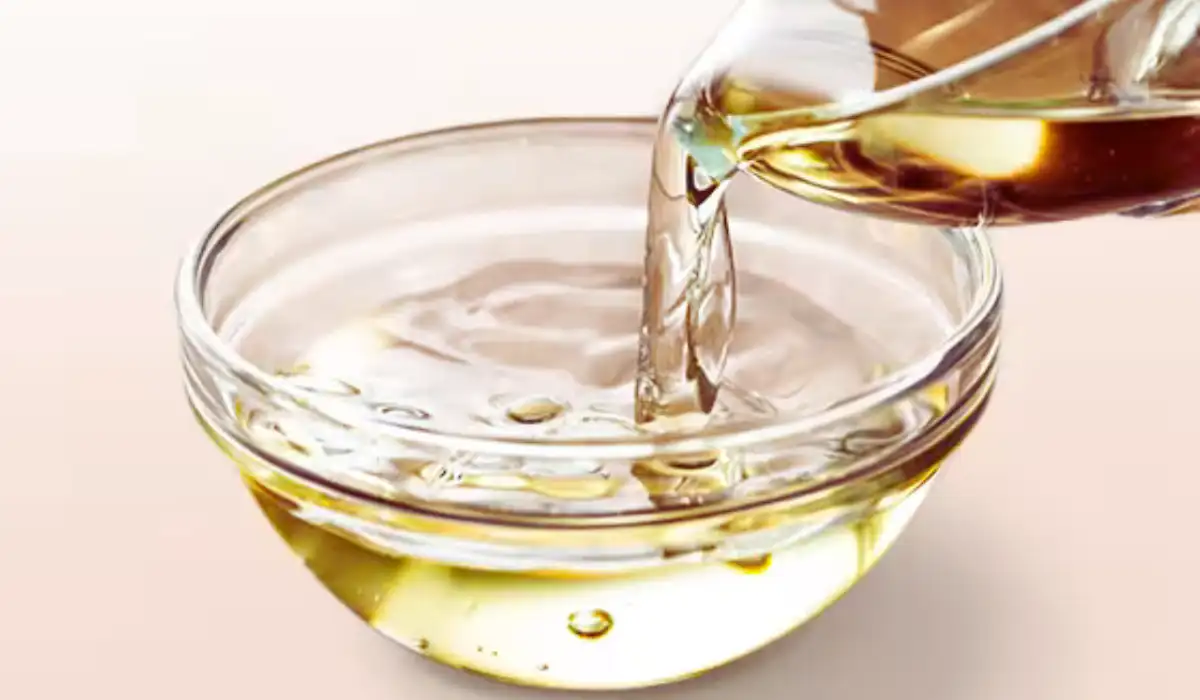Mirin is a traditional Japanese rice wine made from fermented rice. It is a popular staple in Japanese cuisine. Different types of mirin can add flavor and depth to any dish. It has a quintessential role in Japanese cooking, this essay about mirin will provide you with information regarding its health benefits, substitutes, and production methods.
What Is Mirin? An Overview

Mirin is more than just a cooking wine; its origin can be traced back to 710–794 AD, known as the Nara period. In ancient Japan, it was treated as a way to preserve cooked rice. The fermentation process involves steamed glutinous rice, konji mold, and shochu, a distilled spirit made from grains.
It is a sweet rice wine that ferments for up to 60 days. Even though mirin was around from the 17th century onwards, it became a common condiment during the 1900s. Back then, Japanese people used mirin in soy sauce-based fish dishes. The complex blend of sweetness and alcohol content distinguishes it from other sweeteners.
It has the versatile ability to balance flavors and tenderize ingredients. You can use it in a myriad of dishes, like classic teriyaki sauce, miso, nikujaga, and other braised meat or potato delicacies. Now, it has global recognition beyond Japan. You can purchase traditional mirin anywhere in the world.
What Are The Health Benefits?
Beyond its culinary allure, mirin can offer several health benefits. Some of the advantages of mirin include:
✅ Rich in Antioxidants
The fermentation process enhances the level of antioxidants. They can help to reduce inflammation. The antioxidants in mirin have the potential to combat oxidative stress and reduce the risk of other chronic ailments.
✅ Improved Digestion
Incorporating mirin can help improve digestion. It contains digestive enzymes that can facilitate digestion. The fermentation process can add these friendly enzymes. They can promote gut health and facilitate enhanced nutrient absorption.
✅ Low Alcohol Content
Unlike other alcoholic beverages, mirin typically has a lower alcohol content. Its dilution with other ingredients helps to lower alcohol levels. If you are someone looking for lighter options of alcohol, mirin will be a perfect choice.
Since it is a traditional recipe, it does not contain any preservatives or any type of animal product. It is suitable as a vegan-friendly alcohol. Besides, it is naturally gluten-free.
Altogether, mirin can be consumed as part of a balanced diet. Since it can add flavor and complexity to dishes, it will encourage the consumption of veggies and other healthy food items. However, you need to consume it in moderation.
What Is The Best Mirin Substitute?
The availability of mirin is limited to certain regions of the world. So what is the best mirin substitute? If you run out of it when you are in the middle of cooking, there are a few mirin alternatives. You can use the following options:
✔️ Sweet sake or Rice vinegar
Sweet sake or rice vinegar can be a close mirin substitute. Sake is a dessert wine that is made of kanji and fermented rice. These alternatives may lack a higher acidic level. When it comes to mirin vs rice vinegar, mirin is sweet and rice vinegar is sour and acidic. Sake, on the other hand, has a high alcohol level.
✔️ Sherry or Marsala Wine
Dry sherry or sweet marsala wine is another mirin replacement. These two are fortified wines that differ in sweetness and complexity. They can mimic the flavor profile of mirin. You can also add ½ teaspoon of sugar to the mixture if you are using sherry or marsala wine.
✔️ Sugar or Honey with Rice Vinegar
This is a nonalcoholic substitute for mirin; you can combine either honey or sugar with rice vinegar to replicate the flavor. It cannot be the perfect mirin substitute; however, the combination can help achieve the sweet-tart balance. You can adjust the amount of sweetness by changing the ratio of ingredients.
✔️ White Grape Juice
If you don’t want to add alcoholic content to your dish, you can use white grape juice to replace mirin. It is the best alcoholic-free mirin alternative. You don’t need to add additional sweeteners because grapes offer a natural sweetness with a hint of acidity. Apple juice will also work perfectly.
If you are experimenting with a mirin substitute, you need to consider various factors such as flavor, alcohol content, and dietary restrictions. Taste your alternative mix before adding it to the dish.
Conclusion
Mirin is a traditional Japanese condiment that comes with several health benefits. It has a rich history and a wide range of culinary applications. It can add exceptional flavor to dishes. If you don’t have access to traditional mirin, various substitutes can mimic the flavor to some extent.
However, you need to understand that these are only viable options for those who are seeking substitutions. Nothing can perfectly replace the uniqueness and versatility of mirin.
Reference
- Yang KC, Hsu CL, Lin CC, Juan HF, Huang HC. Mirin: identifying microRNA regulatory modules in protein-protein interaction networks. Bioinformatics. 2014;30(17):2527–2528. doi: 10.1093/bioinformatics/btu306.
https://pubmed.ncbi.nlm.nih.gov/24794934/





